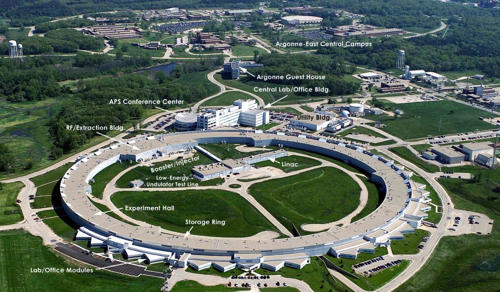Argonne National Laboratory Deployed Nexsan Unity
With 1PB to support Atmospheric Radiation Measurement Program
This is a Press Release edited by StorageNewsletter.com on September 22, 2017 at 2:28 pmNexsan Corporation announced that Argonne National Laboratory (ARM) has deployed Nexsan Unity in support of the Atmospheric Radiation Measurement Program.

Several Unity systems with a total combined capacity of over 1PB are deployed in environmentally challenging locations, from ships to generator-powered data centers in remote corners of the world, collecting climatological data for the US Department of Energy.
Unity has proven to be stable and reliable in unpredictable environments, delivered density and capacity in tight spots, and gives the performance required at a low value.
Located in Argonne, IL, Argonne National Laboratory is a multi-disciplinary science and engineering research center with research divisions and national scientific user facilities that collaborate with scientists around the world to explore, understand, and better the world we live in.
The ARM Climate Research Facility is a department of energy funded program that operates climate measurement sites around the world, measuring all types of climate information, including wind, soil, cloud physics, and precipitation.
ARM facilities are in remote areas of the world and frequently have inhospitable conditions. Sites such as sea containers or remote locations are powered by generator and subject to power outages, dirty power, extensive vibrations, and temperature fluctuations. All systems deployed must be able to stay online in these adverse conditions while collecting data at a rate from 4K to 4GB per hour from a variety of climate instruments.
After experimenting with home-grown storage systems and considering a variety of vendors, Argonne selected Nexsan to meet their requirements, and subsequently deployed systems in 7 locations. The systems proved up to the challenge, with performance exceeding expectations, ability to meet limited space requirements, stable systems in extreme environments and the best value of competing systems.
“Nexsan devices meet our needs in the field. We have never had an instance with Nexsan that caused serious failure or downtime,” said Cory Stuart, ARM site data system and cyber security manager.
“ARM is a critically important research project that is contributing to our understanding of climate science,” said Gary Watson, founder and CTO, Nexsan. “We are proud that our Unity systems meet their challenging requirements and have proven so reliable in difficult environments.“














 Subscribe to our free daily newsletter
Subscribe to our free daily newsletter


